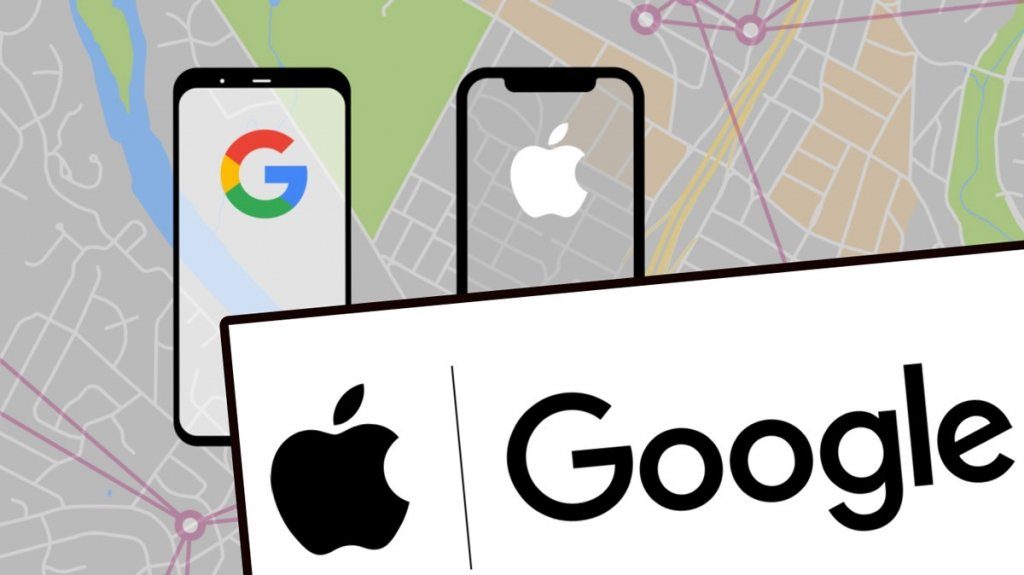Apple and Google will allow users to share data to trace the spread of the coronavirus.

Apple and Google announced a partnership Friday to create contact tracing technology with a goal of reducing the spread of the COVID-19 coronavirus.
The two tech giants said in a statement that their efforts will include the use of Bluetooth technology and downloadable apps in cooperation with public health authorities.
Contact tracing is a public health tool that involves identifying people who have been in contact with someone who has COVID-19, and warning them that they should watch for symptoms or self-quarantine if necessary.
The Apple and Google contact tracing system will use low energy bluetooth signals to exchange anonymous “keys” between phones that are in close proximity with each other; if someone is later diagnosed with COVID-19, they can enter their positive test result into an app and alert all the other phones that were near that “key” recently.
Apple and Google say that the rollout of contact tracing will have two phases: in May, they will make downloadable apps available for contact tracing; in later months, they will push phone updates on iPhones and Androids that have built-in contact tracing capabilities. All features will be opt-in.
Privacy is a key concern here; Apple and Google say their technology will maintain “strong protections around user privacy;” users must provide explicit consent for their data to be shared, and data will be stored locally on devices, not a centralized server. No location data will be used, a company representative said.
It is unclear if this plan would even work. On April 8th, the ACLU released a white paper stating that cellphone data is not generally precise enough to determine which people have been in contact with each other. However, in a response to the Apple/Google announcement, the ACLU wrote: “To their credit, Apple and Google have announced an approach that appears to mitigate the worst privacy and centralization risks, but there is still room for improvement.”
The plan also hinges on broad user adoption and more coronavirus testing; if people don’t opt-in to the program, or positive cases aren’t counted, the system won’t work.
“Contact tracing can help slow the spread of COVID-19 and can be done without compromising user privacy,” tweeted Apple CEO Tim Cook. “We’re working with @sundarpichai & @Google to help health officials harness Bluetooth technology in a way that also respects transparency & consent.”
Key Background:
Several other countries, including China, Singapore and Israel, have already started using cell-phone data to track peoples’ movements and see who has been in contact with positive cases of coronavirus.
Tech companies haven’t always had a great track record when it comes to user privacy. Last year, Google was widely criticized for a project with Ascension health care services called “Project Nightingale,” in which Google engineers used patient medical data without their knowledge to help create a new cloud-based medical records system. Last summer, Google and the University of Chicago were sued in an unrelated case for sharing confidential patient data.